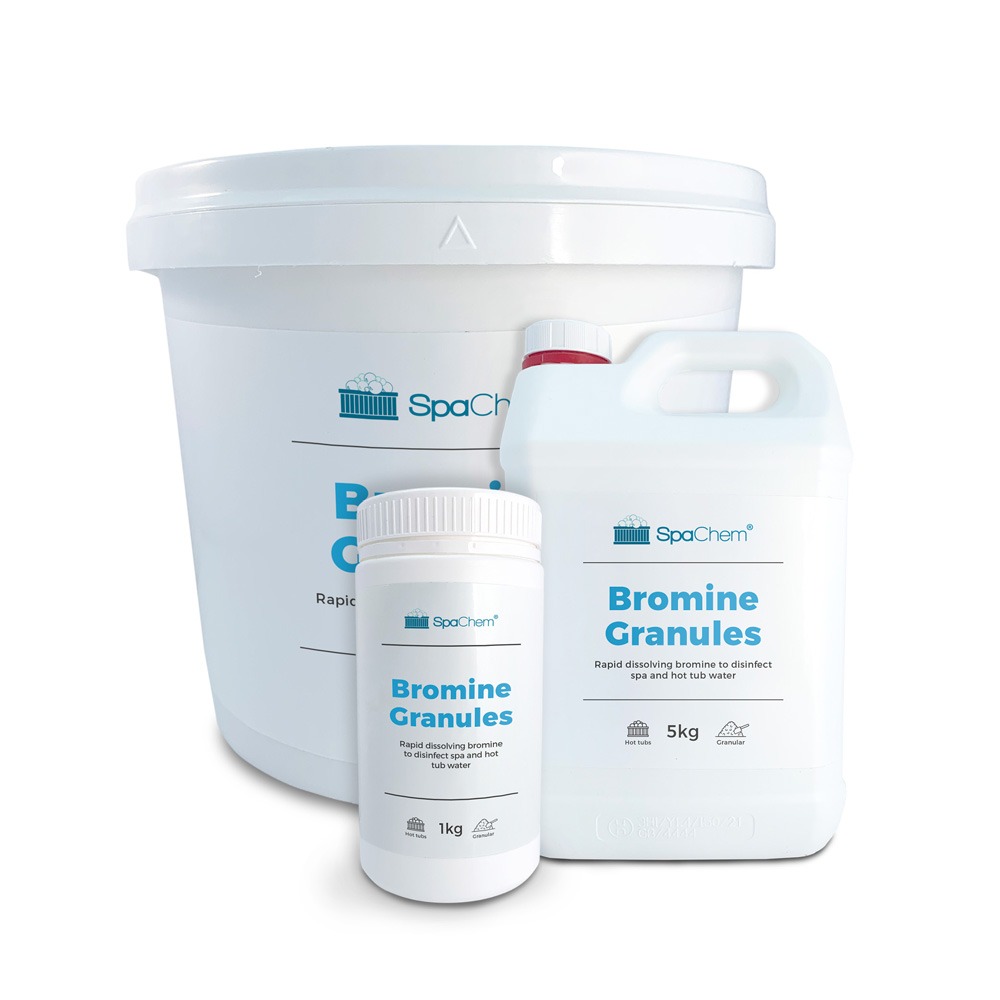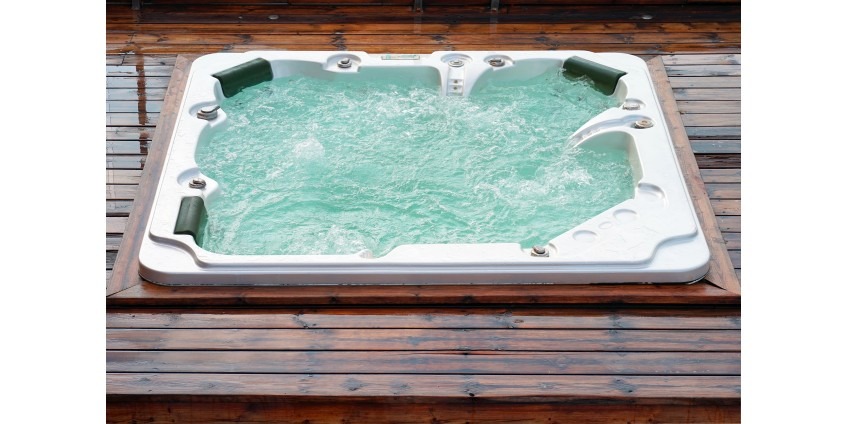Are Bromine Tablets Better Than Chlorine? A Comprehensive Comparison and Analysis

Maintaining clean and safe water in hot tubs and spas is essential for a pleasant and hygienic experience. Two commonly used sanitisers are bromine tablets and chlorine. In this article, we will compare bromine tablets and chlorine, discussing their differences, pros and cons, effectiveness, and factors to consider when choosing between them. Differences between Bromine […]
Hot tub water clear but smells?

Have you ever experienced hot tub water that is clear but smells? You know how unpleasant it can be to dip in smelly water. But don’t worry; the good news is you only have to implement a few simple changes to eliminate your hot tub from that unpleasant odour. Hot tub therapy is a great […]
Supplies for Hot Tub Maintenance

As a leading hot tub supplies company, we offer a variety of hot tub maintenance kits to ensure that you have everything you need for keeping your tub functioning well. Whether you’re looking to replace some worn-out parts or you want to stock up on supplies before the season starts, we have what you need. […]
The Hot Tub Chemicals Guide

Are you unsure of what chemicals you need to maintain and clean your hot tub, spa or pool? Or maybe you’re a new hot tub owner and you are unsure of the right chemical dosage amounts that you require. Whatever your needs, here at SpaChem we have got you covered with our how-to guide. As […]
5 Causes of Hot Tub Scum Lines

Is Your Hot Tub Creating Oily Scum Line? Getting a build up of horrible, oil scum around your hot tub can happen for many reasons. At SpaChem, we have been providing hot tub chemicals and cleaning products for hot tubs for many years now, so we’re more than confident in saying that we can help […]
Cleaning and Maintaining Your Hot Tub

Cleaning Your Hot Tub When it comes to cleaning and maintaining your hot tub, there are a few things you should know. Whether you’ve just got a new hot tub or have had one for years, we’re here to share some advice to help you to keep your hot tub clean and maintained. At SpaChem, […]
Why & What is pH plus for?

If you’re asking yourself, “What is pH plus for?” then don’t worry; we’ve got you covered. In this blog post, we’ll answer some of the most common questions about Sodium Carbonate and what it can do for your spa water. What is pH plus for? Sodium Carbonate or pH Increaser is a granular water treatment […]
Bromine Tablets: What They Are And How To Use Them?

What is bromine tablets used for? Bromine tablets are a great way to maintain your hot tub. Bromine is much more effective than chlorine in killing bacteria, so you must use bromine tablets in your hot tub if you want the best possible water quality. Bromine may not be as bad for your health as […]
What are Bromine Granules?

Bromine is a chemical that has been used for years in spas, hot tubs, and swimming pools to help control bacteria growth. Bromine granules are tiny particles that contain Bromine. These Bromine granules can be added to the water in your hot tub or pool to treat bacteria and algae growth continuously. Bromine Granules Benefits: […]
What to know about Calcium Hardness in your hot tub?

There’s nothing quite like soaking in a hot tub. What could be better than relaxing with friends or family, surrounded by soothing jets and water at the perfect temperature? Find out in this article! You might not be aware that there are some essential factors to consider when maintaining your hot tub, such as calcium […]
Stabilised Chlorine vs Unstabilised Chlorine

You have been through the pro’s and con’s of using bromine v’s chlorine and you have chosen chlorine as your hot tub or spa sanitiser. The next step is to work out which form of chlorine will work best for you. Do you opt for stabilised chlorine granules or the multi-functional chlorine tablets?
How best to manage your spa and hot tub water – SpaChem’s hot tub water maintenance guide

1 – Lets start at the very beginning (we’ve heard this is a very good place to start) and cover your household water source that you use to fill up your hot tub. Our recommendation here is to complete a test of your household main water supply as it comes from source to understand the base incoming water levels for pH, Alkalinity and Calcium hardness.
Why do I need to need to test the water before I fill my hot tub?

Understanding your pool and hot tub water chemistry just got easier, thanks to a new water analysis testing service launched by SpaChem.
Low or No Readings On Bromine or This Might Not Be The Case

Effective bromine readings should be between 4-6ppm. If your readings are outside of this range, there could be a few reasons why. In the last week we have supported several hot tub owners with dormant bromine in their spas, take a read of our latest blog to find out how to achieve the perfect water balance and steps to take to identify dormant bromine readings.
Bromine – The Alternative to Chlorine

Bromine dissolves easily into water in the same manner at chlorine. What makes bromine stand out is that it has a higher ‘gassing off’ temperature. Readings have to read above 58.8 degrees C for bromine to become a gas and be released into the atmosphere. This temperature far exceeds any you will ever use in your hot tub, spa or pool which ensures you won’t loose the bromine’s strength during use.
Why is Chlorine so popular as a biocide.

Chlorine is an excellent sanitiser which has both advantages and disadvantages when it comes to pool, hot tub and spa use. Below we have listed some of the key factors to consider:
‘Tiers’ the season to stay at home and enjoy your inflatable hot tub

Staying at home to stay safe has become the new norm for many, and with this we have seen a steep rise in the number of people opting to try inflatable hot tubs for the first time.
Getting down to the bone about calcium hardness levels – hot tub.

It will probably come as no surprise that your hot tub has an optimal calcium hardness range to help achieve peak performance of your spa. The ideal total hardness range if you have an acrylic finish is 100 – 250ppm or 250 – 450ppm if you have a plastic finish, anything above or below these optimal ranges will need your attention.
The unsightly ring of grime in hot tub water.

Tackling a recurring ring of grime or brown scum around the water level of your hot tub and spa doesn’t have to be a problem you simply put up with. This soapy-discoloured hot tub water and off-putting layer of grime is something that the SpaChem team can help you solve and prevent happening in the first place.
Keeping your hot tub and spa filters safe.

By looking after the filter in your hot tub or spa, you are helping to make sure it runs more efficiently, you use less water treatment chemicals and you increase the life-cycle of the filter itself.
Consequences of Not Using BPR Products

Should a manufacturer, distributor, or retailer that sells biocidal products don’t comply with BPR regulations, then the United Kingdom by the Health and Safety Executive (HSE) can assess hefty fines on the violator, and it doesn’t stop there. The violator chain goes up through the manufacturer to the distributor to the retailer that provides the non-BPR-regulated products.
Biocidal Product Regulation for Hot Tubs

There are some differences in BPR for hot tubs vs. pools, but not many. The most considerable difference between biocidal product regulation for hot tubs vs. any other water body is in the concentration levels.
The Different Types of Biocidal Product Regulations

There are five different types of biocidal product authorisations you can apply for and receive. You must meet at least one of the alternative processes below to have the biocidal products on a marketplace site.
What Are Biocidal Product Regulations (BPR)?

It is the European Chemicals Agency (ECHA) that determines and regulates biocide products (Article 95) in the United Kingdom, EU, and Switzerland. ECHA decides if the biocidal products you’re offering on the marketplace has all the active substances needed.
When did the BPR Regulations come into force?

In 2007 when regulations came into force regarding different varieties, materials, sanitising agents, and chemicals, REACH was formed. REACH stands for Registration, Evaluation, Authorisation, and Restriction of Chemicals. REACH adherence was necessary for all chemical substances used for industrial processes, including cleaning and sanitising.